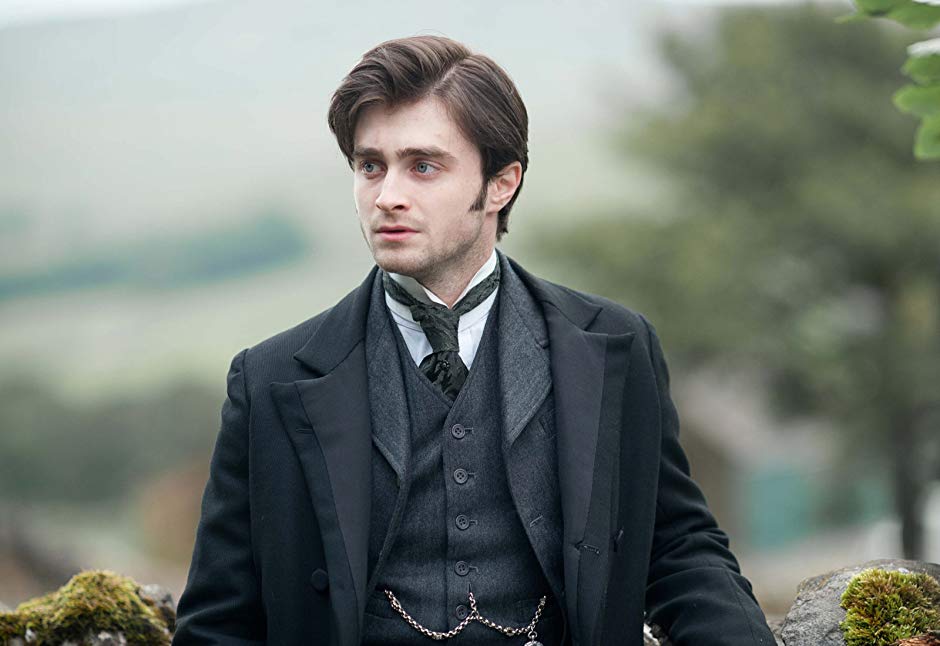Synopsis: Set in the South two years before the Civil War, Django Unchained stars Jamie Foxx as Django, a slave whose brutal history with his former owners lands him face-to-face with German-born bounty hunter Dr. King Schultz (Christoph Waltz). Schultz is on the trail of the murderous Brittle brothers, and only Django can lead him to his bounty. The unorthodox Schultz acquires Django with a promise to free him upon the capture of the Brittles – dead or alive. Success leads Schultz to free Django, though the two men choose not to go their separate ways. Instead, Schultz seeks out the South’s most wanted criminals with Django by his side. Honing vital hunting skills, Django remains focused on one goal: finding and rescuing Broomhilda (Kerry Washington), the wife he lost to the slave trade long ago.
Release Date: December 25, 2012 MPAA Rating: PG-13
Genre(s): Comedy, Western
Film Review

Production
Quentin Tarantino is back to his violent tendencies mingled with romance and vengeance in Django Unchained, and it is marvelous. The story of a dentist turned bounty hunter, Christoph Waltz’s Dr. King Schultz, and his unlikely pairing with the slave he recently freed Django (Jamie Foxx), Django Unchained is a western, a comedy, a full-fledged romance, and to note once again, violent. With a script featuring unforgettable dialogue and music to rival the most eccentric soundtracks ever created, Django Unchained is a feast for the movie senses. It never disappoints to provide action, humor, unexpected sentiment, and performances by all involved that create a movie that should not be missed.

Writing
Django Unchaines comes across as two movies, separated by an event that is bloody, Tarantino style, and freeing for the main character Django given his slave roots. It is here that everything changes from Spaghetti western to a vengeance filled, romantic, rescue mission to get back Django’s wife Broomhilda (its okay to giggle, I did) who was sold to Calvin Candie (Leonardo DiCaprio), the owner of the Candyland ranch. Similarly to Kill Bill, you may not like the second part as much as the first of Django Unchained, or vice versa depending on your tastes. But that doesn’t mean the whole of Django Unchained‘s parts aren’t excellent–and this coming from a normally anti-Tarantino critic. You could argue that the film is far too long, and the third act needlessly includes additional scenes, one including a cameo from Tarantino, that hold no real purpose. It’s true, as what comes before and after could have existed without the time in the middle, but this is Tarantino writing a script and directing a movie, he is not one to trim anything down, always accepting that more is better, not the less is more philosophy. It can be his downfall in certain films, but in Django Unchained it succeeds, merely as a moment of time to breathe, run to the restroom, or to merely prepare yourself for the epic violent showdown at the climax of the film.
An enigmatic main character provides the necessary tick to a Quentin Tarantino picture. Django Unchained has two main characters, each with very different personalities and motivations and written impeccably by Tarantino to have full characterization and uniqueness. Yet Django Unchained is not a buddy western; in fact, the two main characters, Dr. King Schultz (Christoph Waltz) and Django (Jamie Fox), switch places from the first to second to third acts of the film–and given the length of Django Unchained you could even argue there is a fourth act, or concluding epilogue of considerable length. Schultz and Django hold the story together. The eccentricities of Schultz lend a comical relief to the film, as well as absolution towards the “white” man’s predisposition of the time period towards slavery–he is of course against the notion, and willing to acknowledge his beliefs to anyone and everyone.
Django was a slave, given his freedom papers by Schultz after being bought and a negotiation put in place. It is only after Django discovers that he too can be something, on his own, as a bounty hunter, with Schultz and treated with respect that he transforms from a mere centerpiece in the narrative to a main character hell bent on rescuing his wife from the clutches of Candyland. Django Unchained is brilliantly crafted because it is a western, a gun slinging comedy of the spaghetti sort, and a romance. A romance the only way Quentin Tarantino knows how to write one, with plenty of blood and violence a la True Romance. Traveling with Django and Schultz, watching them each change and adapt to the situation, and ultimately becoming mentor and pupil, makes for a far greater entertaining piece of filmmaking than Tarantino has made in years. The chemistry between Fox and Waltz is perfect, and each bring a certain panache to their characters that few actors could muster. Django Unchained even manages to say something about slavery, then and now, in the mindset of a people and how through actions of one person change can be brought about. It is a stretch to find the deeper meaning in Django Unchained amidst all of the carnage and colorful characters but its there, buried down deep just as it was in Inglourious Basterds and Natural Born Killers.
Cast and Crew
- Director(s): Quentin Tarantino
- Producer(s):
- Screenwriter(s): Quentin Tarantino
- Story:
- Cast: Jamie Foxx (Django)Christoph Waltz (Dr. King Schultz)Leonardo DiCaprio (Calvin Candie) Kerry Washington (Broomhilda)Samuel L. Jackson (Stephen)Walton Goggins (Billy Crash)Dennis Christopher (Leonide Moguy)
- Editor(s): Fred Raskin
- Cinematographer: Robert Richardson
- Production Designer(s):
- Costume Designer:
- Casting Director(s):
- Music Score:
- Music Performed By:
- Country Of Origin: USA
